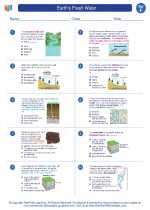Natural Gas
Natural gas is a naturally occurring hydrocarbon gas mixture consisting primarily of methane, along with other hydrocarbons such as ethane, propane, butane, and pentane. It is formed over millions of years from the remains of ancient marine microorganisms that were buried and subjected to heat and pressure deep within the Earth's crust.
Composition of Natural Gas
The composition of natural gas can vary, but it is primarily composed of methane (CH4), which makes up about 70-90% of its volume. The remaining components include ethane (C2H6), propane (C3H8), butane (C4H10), and small amounts of other gases and non-hydrocarbon gases.
Extraction and Processing
Natural gas is typically extracted from underground reservoirs through drilling wells into the rock formations where it is trapped. Once extracted, it undergoes a series of processing steps to remove impurities and separate the different hydrocarbon components, resulting in what is commonly known as "pipeline-quality" natural gas.
Uses of Natural Gas
Natural gas has a wide range of uses, including:
- Heating homes and buildings
- Generating electricity
- Fueling vehicles
- Industrial processes, such as producing chemicals and fertilizers
- As a feedstock for the production of materials such as plastics and synthetic fibers
Environmental Impact
While natural gas is considered a cleaner-burning fossil fuel compared to coal and oil, its extraction, processing, and combustion still have environmental impacts, including the release of greenhouse gases such as carbon dioxide and methane, as well as the potential for water and soil pollution.
Study Guide
Here are some key points to remember about natural gas:
- Natural gas is primarily composed of methane, along with other hydrocarbons.
- It is extracted from underground reservoirs and undergoes processing to remove impurities.
- Uses of natural gas include heating, electricity generation, and industrial applications.
- While cleaner than other fossil fuels, natural gas still has environmental impacts.
For a more in-depth understanding, it's important to study the geology of natural gas formation, the extraction and processing techniques, as well as its environmental implications and potential alternatives for energy production.
[Natural Gas] Related Worksheets and Study Guides:
.◂Science Worksheets and Study Guides Sixth Grade. Earth's Fresh Water

 Worksheet/Answer key
Worksheet/Answer key
 Worksheet/Answer key
Worksheet/Answer key
 Worksheet/Answer key
Worksheet/Answer key
 Vocabulary/Answer key
Vocabulary/Answer key
 Vocabulary/Answer key
Vocabulary/Answer key
